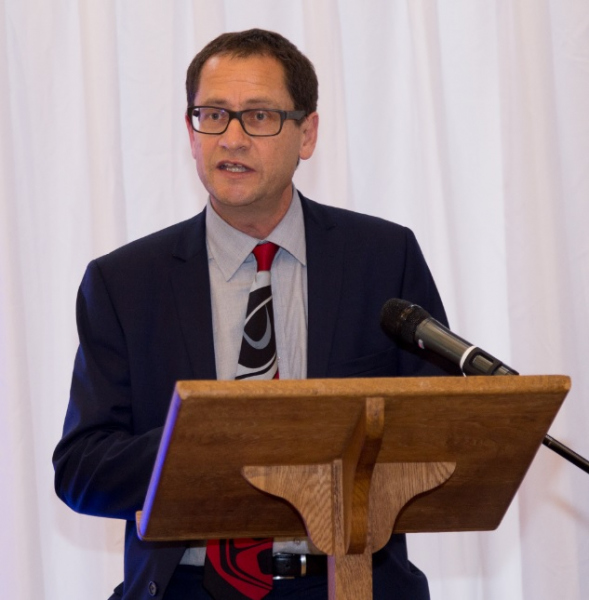JAWS 2022 keynote is speaker is Prof. Roger Goodman, Nissan Professor of Modern Japanese Studies at University of Oxford

This talk has both a retrospective aspect and a prospective one. It looks back at three research projects undertaken since the early 1980s which examined how private institutions dealing with the care and education of young people responded to the rapid decline in the number of such people in the population.
Modelling in the mid-1980s showed that would be a 40% drop in the number of children coming into the school system over the next twenty years which was predicted to have a major impact on the number of private senior high schools (which constituted 70% of all senior high schools); between 1975-95, the total number of births in Japan dropped by over 37% which was predicted to have a major impact on the number of private children’s homes (yōgoshisetsu) which constituted around 90% of all children’s homes; between 1992-2002, the number of 18/19-year olds in the population (who made up 95% of university entrants) decreased by 30% which was widely expected to lead to an equal number of private universities (which catered to over 75% of all students) to disappear.
This talk examines why in each case the predictions of mass bankruptcies and closures made by policy-makers working with models of economic rationality proved so misplaced. It looks at: the development of new programmes in the 1980s, such as for kikokushijo (returnee schoolchildren) in secondary schools; the ‘discovery’ of child abuse in the 1990s leading to new ‘markets’ of children who needed to go into care; the dramatic increase in the age participation rate (especially for women) entering university in the 2000s.
But more importantly, it asks how these changes came about: who were the key interest groups and actors and what did the process tell us more generally about Japanese society? For example, why has the number of private children’s homes remained almost exactly the same, when there has been such pressure from government for them to be replaced by familial forms of care such as adoption and fostering? Why do private schools continue to invest in such complicated (and expensive) programmes, such as those for kikokushijo? Why, rather than the total number of private universities contracting in the past two decades, has the average size of private universities gone down so much and the staff/student ratio (and consequently student experience) actually improved?
It is proposed that much of the answer to these conundrums lie in the fact that so many educational and welfare institutions in Japan are family-run businesses, passed on from generation to generation. Continuity and reputation are key and act as sources of inbuilt resilience that over-ride models of economic efficiency led by supply and demand.
The final part of the talk extends the study to ask questions about the involvement of family business in the medical field in Japan. Today, around 80% of all hospitals and 90% of all clinics in Japan are private, mainly family, businesses. These medical corporations grew rapidly in the post-war period and some of them are very large (up to 12,000 employees) though many are one-person operations. How does this structure of family hospitals and clinics in Japan affect the pattern of patient care? How did it impact on Japan’s ability to respond to the COVID pandemic? How will it respond to Japan’s demography which shrunk last year by 600,000 people and will soon be shrinking by up to a million people a year? In what ways will it demonstrate resilience in a post-COVID world?
Prof. Roger Goodman is Nissan Professor of Modern Japanese Studies and Warden of St. Antony’s College at University of Oxford. He has been the Head of the Social Sciences Division within the University of Oxford, and President of the UK Academy of Social Sciences. His research is mainly focused on Japanese education and social policy. His most recent book, co-authored with Jeremy Breaden, is entitled Family-Run Universities in Japan: Sources of Inbuilt Resilience in the Face of Demographic Pressure, 1992-2030 (published by Oxford University Press, 2020). Other publications include the monographs Japan’s International Youth: The Emergence of a New Class of Schoolchildren (1990; published in Japanese as 帰国子女:新しい特権層の出現), and Children of the Japanese State: The Changing Role of Child Protection Institutions in Contemporary Japan (2000; published in Japanese as日本の児童養護:児童養護学への招待). He has also edited and co-edited a number of books including: Ideology and Practice in Modern Japan (1992); Case Studies on Human Rights in Japan (1996); The East Asian Welfare Model (1998); Family and Social Policy in Japan (2002); Can the Japanese Change their Education System? (2002); Global Japan (2003; published in Japanese as 海外における日本人、日本の中の外国人), The ‘Big Bang’ in Japanese Higher Education (2005); Ageing in Asia (2007); A Sociology of Japanese Youth (2011; published in Japanese as 若者問題の社会学:視線と射程) and Higher Education and the State (2012). He has supervised almost forty doctoral theses, mainly on Japan, over the past 25 years on topics ranging from Shinto shrines to volleyball coaches, teacher unions to karaoke, and hikikomori to firefighters.